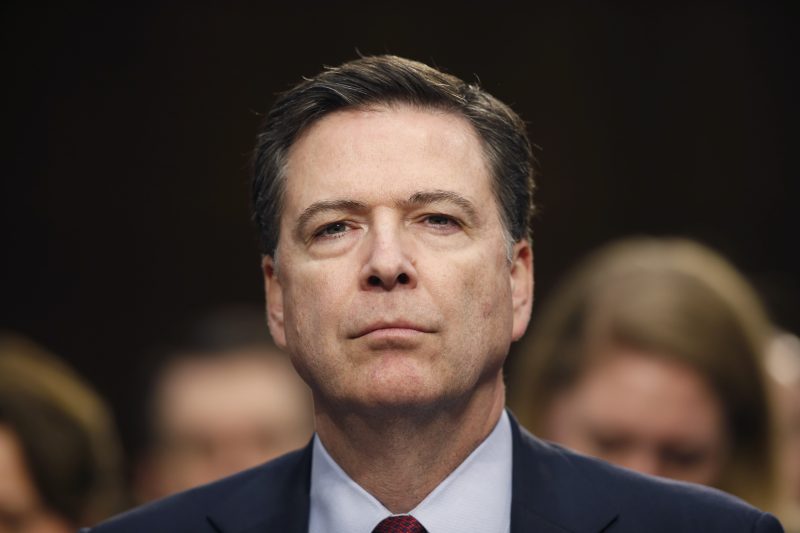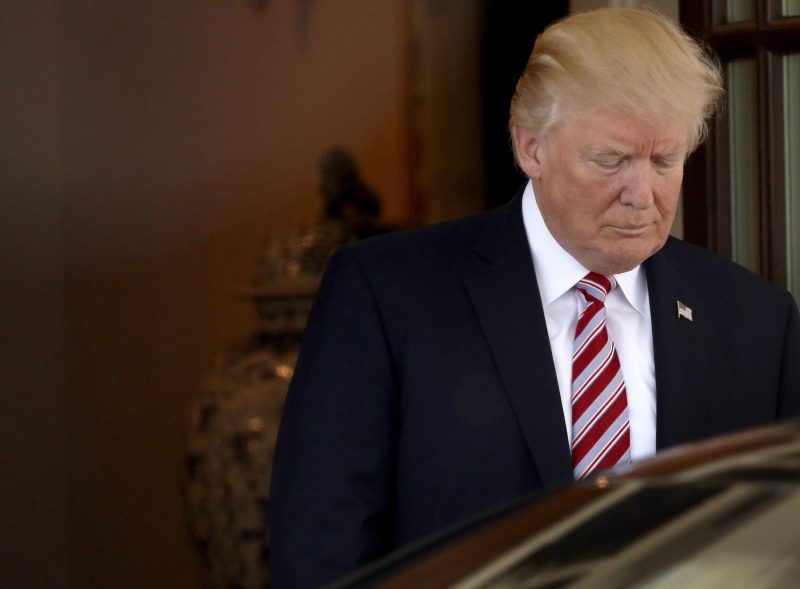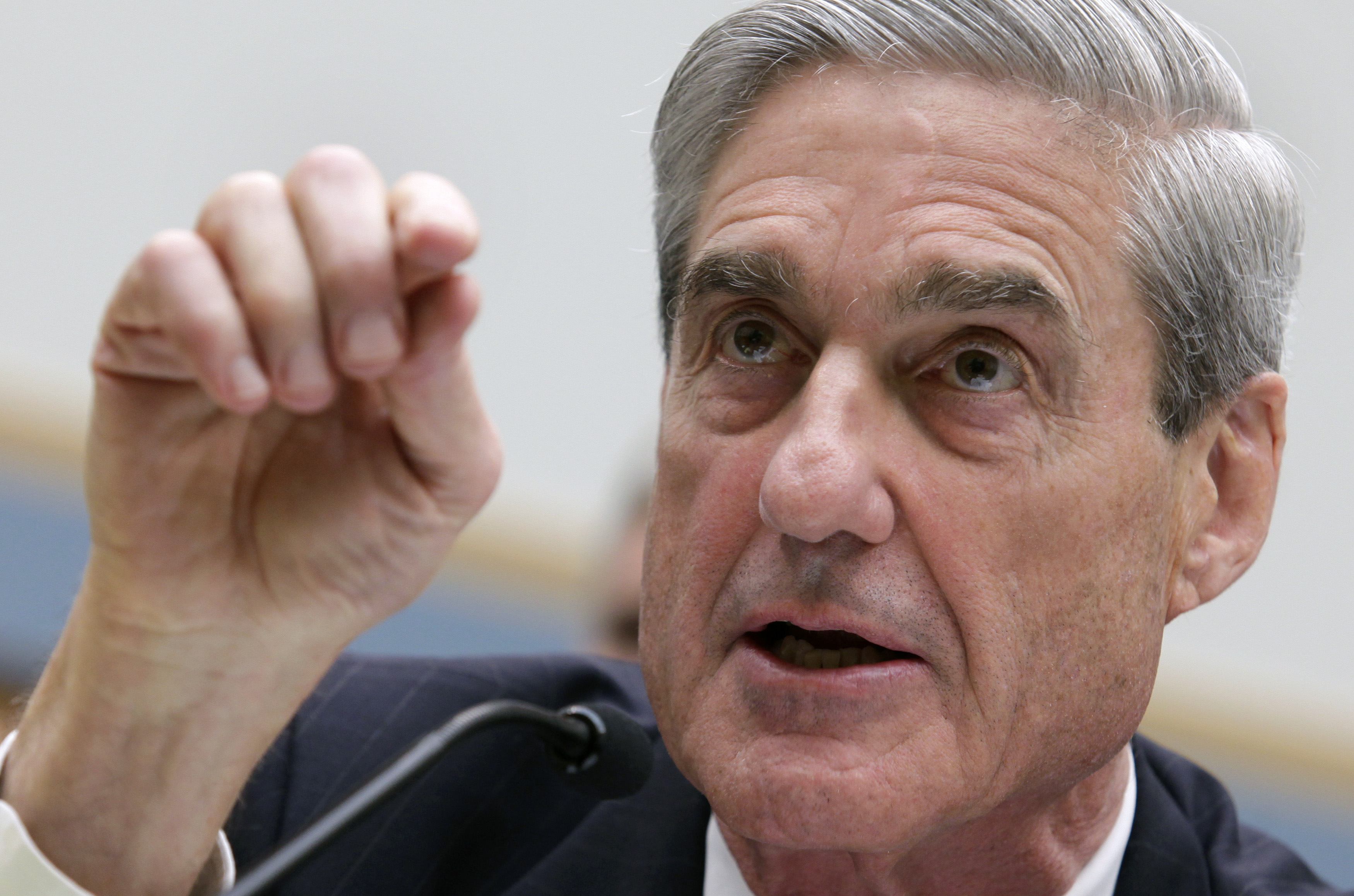On Wednesday evening, news broke that Deputy Attorney General Rod Rosenstein had appointed former FBI Director Robert Mueller as a special prosecutor in charge of investigating the Trump campaign’s ties to Russian officials and whether the campaign colluded with Russia to meddle in the the 2016 election.
Mueller’s appointment was hailed by Democrats and Republicans alike, as well as those in the national security community.
“Mueller is experienced, knowledgeable, capable,” David Kris, a former assistant attorney general for national security, wrote on Lawfare. “He is utterly incorruptible. He cannot be intimidated,” Kris said, adding that Mueller was “ramrod straight in his integrity.” Kris and Mueller worked closely together.
“Rod Rosenstein has taken serious lumps this week (everyone one of them deserved). Can’t erase history but tonight he deserves our thanks,” tweeted Susan Hennessey, a national security fellow at the Brookings Institution and a Lawfare contributor, when it emerged that Mueller had been appointed special prosecutor.
Mueller rose to public prominence along with James Comey in 2004, when he and Comey threatened to resign if the Bush administration revived the National Security Agency's warrantless surveillance program without making changes to it. At the time, Mueller was FBI director and Comey, whom Trump fired as FBI director last week, was the deputy attorney general. The White House eventually backed off.
During his time at the FBI, Mueller, who was sworn in as director shortly before the September 11 terrorist attacks, largely presided over the bureau's shift to counterterrorism operations that now dominate a significant portion of its caseload.
Most recently, Mueller was a partner at the law firm WilmerHale, which represents numerous associates of Trump including his daughter Ivanka, his son-in-law, Jared Kushner, and his former campaign manager Paul Manafort. Upon being appointed as special prosecutor in the Russia investigation, Mueller resigned from his position at the firm to avoid any conflicts of interest.
Robert Novick, a comanaging partner at WilmerHale, told Lawfare that Mueller "had nothing to do with these representations" and was not privy to any information related to Ivanka Trump, Kushner, or Manafort.
National security experts noted that along with their 2004 showdown with the Bush administration over the NSA's program, Mueller and Comey also share another trait that may prove useful in the Russia investigation: Both men have "significant prosecutorial experience and have run a major investigative force."
Comey was the US attorney for the Southern District of New York before eventually becoming FBI director. Mueller was the US attorney for the Northern District of California and the assistant US attorney in the District of Massachusetts before becoming FBI director. He also used to spearhead the Department of Justice's Criminal Division.

Intelligence officials say Mueller, like Comey, is known for his independence. He also has not been afraid to push back against the White House in the past, as he did in 2004.
"He doesn't sway under political pressure," Thomas J. Pickard, who served as deputy director of the FBI under Mueller, told The Washington Post. Mueller has served under Democratic and Republican presidents - he helmed the FBI under George W. Bush and Barack Obama from 2001 to 2013. "For 12 years, he kept the FBI out of politics," Pickard said.
Trump 'may have gone from the frying pan into the fire'
Experts say Mueller's appointment as special prosecutor in the Russia investigation will also ensure that it proceeds smoothly after a rocky start.
"I have enormous respect for Bob. We worked together when I was at the NSA," Robert Deitz, a former top counsel for the NSA and the CIA who worked with Mueller when he headed the FBI, told Business Insider.
"The Russia investigation will continue apace with no loss of momentum," Deitz said. And if more evidence of Trump's or his associates' ties to Russia emerges, he said, Mueller's appointment means "the president may have gone from the frying pan into the fire."
Mueller's independence also suggests he would most likely be just as hard on those who leak classified information as on those who may have broken the law and colluded with a foreign power.
"I have no doubt that he will be even-handed - including going hammer and tong after anyone who is leaking investigative or classified information," George J. Terwilliger III, who worked with Mueller when they were assistant US attorneys, told The Washington Post.
The Trump-Russia narrative has picked up steam over the past week, as the White House became embroiled in multiple controversies that raised questions about Trump and his associates' ties to Russian officials. Last Tuesday, Trump abruptly fired Comey, who was spearheading the FBI's investigation into the Trump campaign's ties to Russia. The next day, Trump hosted Russian Foreign Minister Sergey Lavrov and Russian Ambassador Sergey Kislyak in the Oval Office. American reporters were not allowed into the room, but a Russian photographer was.
Over the next few days, the president acknowledged "this Russia thing" was a factor in his decision to fire Comey, telling NBC's Lester Holt that Comey was a "showboat" and a "grandstander." On Friday, Trump seemed to threaten Comey with "tapes" of their conversations if Comey leaked sensitive information to the press.

This past Monday, The Washington Post, citing officials familiar with the matter, reported that Trump disclosed highly classified information to Lavrov and Kislyak during their Oval Office meeting. The New York Times later reported that the intelligence in question had come from Israel, a key US ally that is also an adversary of Iran, a key Russian ally.
The next day, The New York Times broke news of a memo that officials said Comey wrote about a February meeting he had with Trump in the Oval Office. According to the memo, Trump asked Comey to drop the FBI investigation into former national security adviser Michael Flynn.
"I hope you can see your way clear to letting this go, to letting Flynn go," Comey recalled Trump telling him, according to The Times. "He is a good guy. I hope you can let this go." The meeting took place one day after Flynn was forced to resign from his position after it emerged that he had lied about contacts he had with Kislyak.
The White House pushed back on the memo. "The president has never asked Mr. Comey or anyone else to end any investigation, including any investigation involving General Flynn," a statement released by an unnamed administration official said. "The president has the utmost respect for our law-enforcement agencies, and all investigations. This is not a truthful or accurate portrayal of the conversation between the president and Mr. Comey."
On Wednesday, The Times reported that Flynn had informed the Trump transition team that he was under FBI investigation on January 4. According to The Times, Flynn told transition team member Don McGahn, who now serves as White House counsel, about the investigation.
The Times' report seems to contradict the Trump administration's claim that it was not aware Flynn was under investigation before former Sally Yates, then the acting attorney general, mentioned it later in January. The White House did not dismiss Flynn until 18 days after Yates warned that he may be vulnerable to Russian blackmail.
The steady drip of new details about Trump and his associates' ties to Russia necessitated the need for a special prosecutor, Glenn Carle, a former CIA clandestine-services officer, told Business Insider. Carle called Mueller "solid," "impartial," and "professional," and also added that Mueller's appointment may temporarily stall the Russia investigation.
"Things will slow down because Mueller will be deliberate and thorough," Carle said. While he said the investigation's likely slowed pace may reduce the day-to-day tumult that has rocked the White House over the past few days, Carle added that it was likely Trump would try to "divert attention by having surrogates attack Mueller's independence and integrity."
But given Mueller's reputation as an apolitical, independent prosecutor and the precarious position the White House is currently in, Carle said, "it will be difficult for him to do so, and the costs would be high."

